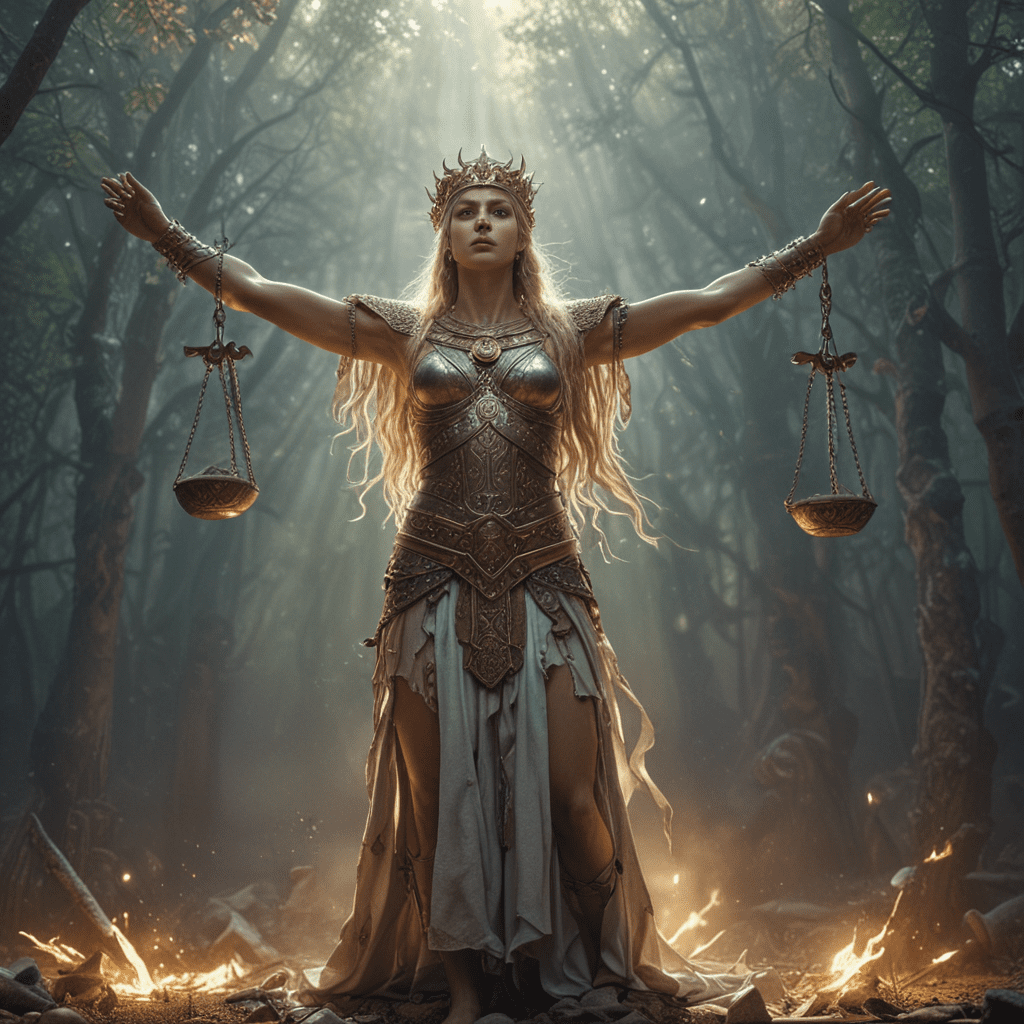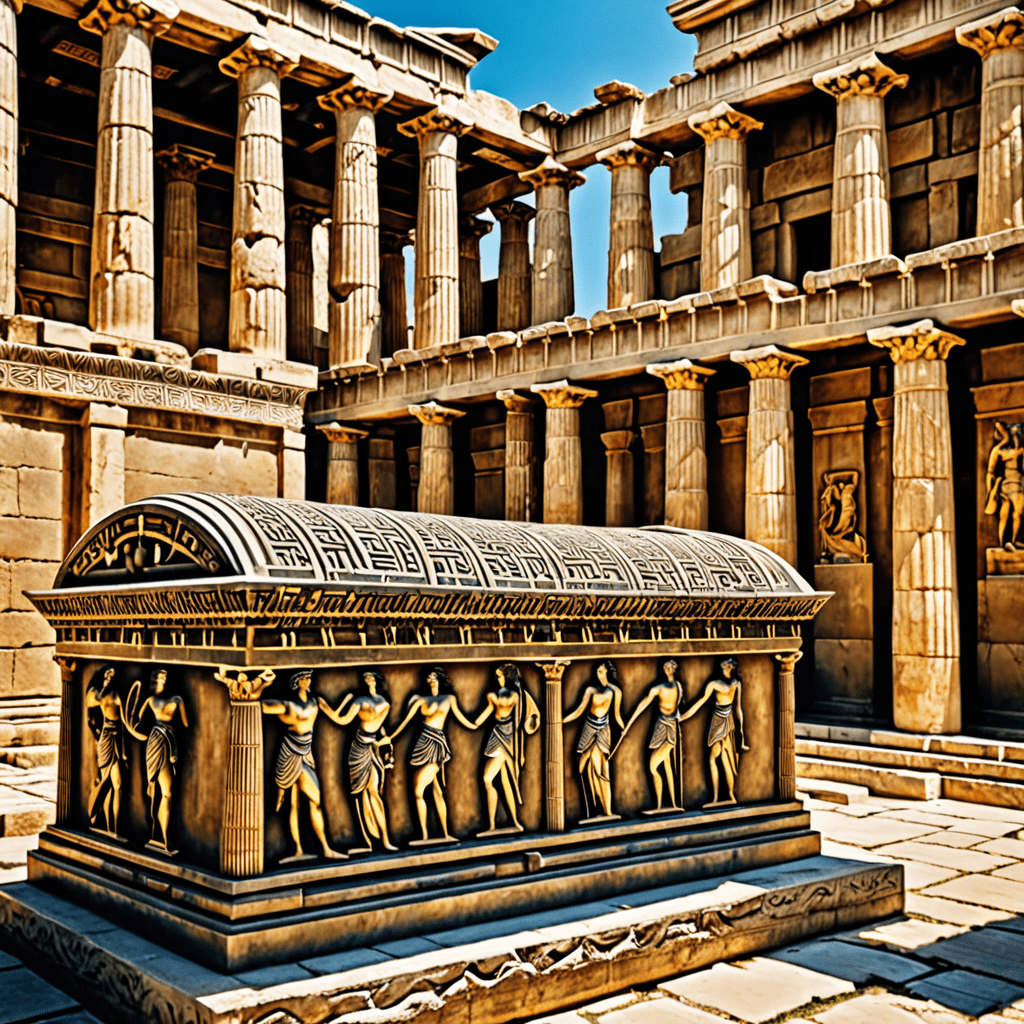The Concept of Justice in Slavic Mythology
Justice holds a significant place in Slavic mythology, where it is deeply entwined with the beliefs, values, and traditions of the Slavic people. This concept manifests itself in various aspects of Slavic mythology, from the roles of gods and deities to the practices of the Slavic trial system.
The Slavic Pantheon and Justice
Within the Slavic pantheon, several gods and deities are associated with justice. One such deity is Prav, who represents law, order, and justice. Prav ensures harmony and balance in the world and punishes those who transgress its laws. Other deities, such as Veles, Svarog, and Perun, also play roles in maintaining justice and punishing wrongdoings.
The Slavic Worldview
The Slavic worldview is based on a fundamental belief in the importance of balance, harmony, and reciprocity. This is reflected in the concept of justice, which emphasizes fairness and equity. Justice is seen as a way of restoring balance and maintaining harmony within Slavic society.
The Slavic Trial System
Slavic mythology describes a unique trial system that involves various rituals, oaths, and ordeals. In this system, the community plays a central role in determining guilt or innocence. The rituals and oaths were believed to reveal the truth and ensure fairness in the proceedings.
Punishment and Retribution
Justice in Slavic mythology involves various forms of punishment and retribution for those who violate the laws and norms of society. Punishments could range from fines and social ostracism to physical punishments or even death. The concept of collective responsibility was also significant, where the family or community of a wrongdoer could share in the punishment.
6. Justice and Morality
Justice in Slavic mythology is closely intertwined with moral principles. The gods and deities associated with justice are also guardians of morality, ensuring that individuals adhere to ethical standards and values. Actions that violate moral principles, such as lying, stealing, or harming others, are severely punished.
7. Justice in Slavic Literature
Slavic literature, including epic poems, folk tales, and sagas, is replete with stories that explore the concept of justice. Characters in these stories often embody the Slavic values of fairness, equity, and retribution. The narratives highlight the consequences of just and unjust actions, reinforcing the importance of upholding justice in society.
8. Justice in Slavic Folklore
Slavic folklore includes customs, traditions, and beliefs that relate to the pursuit of justice. Proverbs, riddles, and incantations often convey wisdom and lessons about just behavior. These traditions serve as a reminder of the significance of justice in Slavic culture and provide guidance for individuals in their daily lives.
9. Slavic Justice in the Modern Era
The concept of justice in Slavic mythology has influenced contemporary legal systems in Slavic countries. The principles of fairness, equity, and collective responsibility continue to shape legal practices and institutions. The legacy of Slavic traditions is evident in the emphasis on restorative justice and the pursuit of reconciliation in modern legal frameworks.
10. Conclusion
The concept of justice in Slavic mythology is a complex and multifaceted one. It encompasses the roles of gods and deities, the Slavic worldview, the trial system, punishment, morality, literature, folklore, and its influence on contemporary legal systems. Justice is seen as a fundamental pillar of Slavic society, ensuring balance, harmony, and equity within the community. The enduring legacy of Slavic mythology continues to shape the understanding and pursuit of justice in Slavic cultures today.
FAQ
Q: What is the role of Prav in Slavic justice?
A: Prav is the god of law, order, and justice in Slavic mythology. He ensures harmony and balance in the world and punishes those who transgress its laws.
Q: How did the Slavic trial system determine guilt or innocence?
A: The Slavic trial system involved various rituals, oaths, and ordeals. The community played a central role in these proceedings, and the rituals were believed to reveal the truth and ensure fairness.
Q: What were the forms of punishment in Slavic mythology?
A: Punishments in Slavic mythology ranged from fines and social ostracism to physical punishments or even death. The concept of collective responsibility was also significant, where the family or community of a wrongdoer could share in the punishment.
Q: How has Slavic mythology influenced contemporary legal systems?
A: The principles of fairness, equity, and collective responsibility from Slavic mythology have influenced contemporary legal systems in Slavic countries. The legacy of Slavic traditions is evident in the emphasis on restorative justice and the pursuit of reconciliation in modern legal frameworks.



